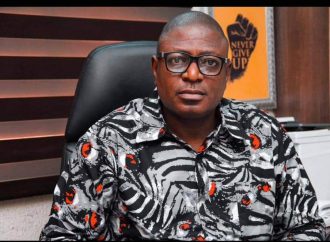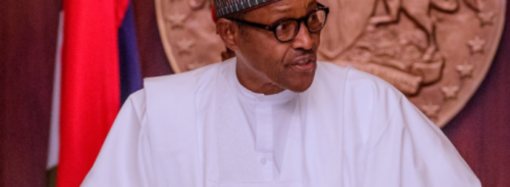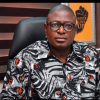Despite several agitations for gender equity and 35% affirmative action for women in Nigeria there seems to be no commensurate action to attain the much needed gender balance especially with regards to sensitive and decision making positions in the country. Many reports on gender sensitive issues have shown that women still occupy the lower rung,
Despite several agitations for gender equity and 35% affirmative action for women in Nigeria there seems to be no commensurate action to attain the much needed gender balance especially with regards to sensitive and decision making positions in the country.
Many reports on gender sensitive issues have shown that women still occupy the lower rung, not only in the economy but also in politics where there is supposed to be level playing ground for all irrespective of gender difference as sound decision making is not the prerogative of the male gender.
Angara Ochanja and Ayambam Terwase reported in the European Journal of Business and Science that the population of women occupying elective offices in Nigeria from independence to 1999 represent only 3.1%. According to the report, ever since the return of democracy in Nigeria in 1999, the number of women in decision making positions have continued to increase with more than half of them occupying appointive offices rather than elective offices.
In Gombe state, Northeast Nigeria, history reveals that right from 1999 there were no women in both the state executive council and the legislature until 2003 when former governor Mohammed Danjuma Goje appointed two female commissioners while one was elected into the state legislature. But the number of female legislatures increased to two in 2007 during his second tenure.
Currently the number of women in sensitive positions in the state has increased following the recent appointment of female commissioners by the incumbent governor of the state Ibrahim Hassan Dankwambo. The number of women in the state executive council has increased to five, which is the highest in the history of the state executive council. But with only one woman at the national assembly and none in the state house of assembly, there is still a big challenge in the elective sphere
There is also the challenge of low women participation in the electoral process despite the expectation that it should be increasing. Recent reports from the just conducted Voter Registration and distribution of Permanent Voter Cards by the Independent National Electoral Commission indicate that there was low turn-out of women during the exercise. According to the report, their number was far below the expected number of eligible female voters in the state.
The INEC Resident Electoral Commissioner in the state Prof. Istifanus Ishaku Dafwang at a meeting he held with stakeholders to discuss the conduct of the exercise expressed concern over the poor participation of women in political activities in the state.
He told NDR reporter in an interview that the commission had made intensified efforts through voter education and several enlightenment programmes with a view to improving women participation in electoral activities.
Even though he said the efforts had yielded results, he still raised the need for more voter education with particular focus on men so they could be encouraged to allow their wives the freedom to engage in political activities.
“The issue of women and low turnout is not only a case in Gombe State but in many northern states of Nigeria for obvious reasons. In Gombe we have done our best to mobilise women. Long before the distribution of cards, Gombe state was far ahead of every other state in terms of producing materials that were directed at women. I’m sure there is a lot of improvement but we still haven’t reached the level we wished to arrive at” says Prof. Dafwang.
Also speaking to political party leaders on the issue, Mrs Margret Bitrus, Zonal Women Leader of the All Progressive Change (APC) said the party has made progress in its effort towards mobilising women to engage in politics and contest for elective positions. She disclosed that the party nomination forms were sold to women free of charge in other to encourage them, even as she said women have been engaged in all party affairs.
State party Chairman of the People’s Democratic Party (PDP) Mr. Shuaibu Baba Sabulu also told NDR in an interview that the PDP has registered more women into the party in recent times more than ever in the history of the party in the state. He also said more women have indicated interest for various elective positions under the party platform. He said the party would continue to intensify its enlightenment and advocacy campaigns to improve women participation as well as engage them in party affairs by giving them various positions within the party.
Despite these pledges however, it has been observed that in the just concluded primary elections conducted by both APC and PDP in the state, only three women were able to scale through to stand a chance to contest in the next general elections.
Our reporter observed that only two women won the primaries out of over 44 women who were vying for various elective positions under the platform of PDP, while for the APC only one woman could scale through out of two female contestants.
Speaking about challenges facing female politicians, Mrs. Finny David who contested for Billiri-Balanga Federal Constituency under the platform of APC told our reporter that some of her biggest challenges include lack of economic power, gender stereotype, and intimidation.
She said culture and religious factors are also barriers that prevent women participation in politics or any public activity. According to her, a lot of women politicians have been exposed to threats, witchhunt, and intimidations that are always associated with politics.
“Women are economically and educationally backward, because the law does not really encourage woman inheritance even in Nigeria; married women are discouraged because people think once a woman is in politics she is morally low. Politics also involves a lot of expenses and that is why many women don’t venture into politics”, she added.
Ms Asma’u Iganus who currently serves as Commissioner of Science and Technology in Gombe is also of the opinion that governments, private organisations and even individuals should encourage girl-child education in other to build future women leaders.
According to her the current administration in the state has been working towards ensuring women empowerment through its various programmes, even as she called on women to get actively involved in politics in order to bridge the gap.
It is unarguably believed that women who have been given opportunities to hold various responsibilities have been able to perform even better and therefore known for their outstanding performances.
Former Minister of Women Affairs and Social Development, Hajia Zainab Maina has been quoted in a speech she delivered at consultative meeting with stakeholders on the First Draft of the Centenary Country Report on Nigerian Women held sometime in Abuja, that, “Nigerian women have made contributions in Science, Arts, Small Businesses, Leadership Development and many more” saying “indeed, women have contributed to the growth and progress of the nation.”






















Leave a Comment
Your email address will not be published. Required fields are marked with *